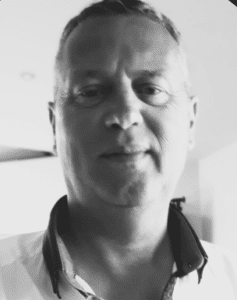1. Introduction
Bruno CAIRON, Transition Manager with the EXPERING community, shares his experience of managing major industrial projects, after more than 26 years in multi-sector management (nuclear, naval, industrial and pharmaceutical). His last assignment via EXPERING lasted over 2 years in the pharmaceutical sector, an exciting and challenging assignment for our seasoned manager.
2.WHAT ARE THE RECOMMENDATIONS FOR A LARGE-SCALE PROJECT?
My experience in the field of project management, and more specifically in large-scale industrial projects costing over 100 million euros, leads me to make a few recommendations for successful project management.
In my opinion, the decision to embark on a project and its financing involves a number of essential stages, for which decision-makers and financiers demand rapid execution.
However, these stages are essential, and I’d like to remind you of their main points.
1) feasibility study ==> budget +/- 50%.
2) preliminary design study ==> budget +/- 20%.
3) preliminary design study ==> budget +/- 10%.
Exceeding the time required for these studies entails industrial, planning and cost risks.
It is therefore necessary to open a risk portfolio and to include a “Project and site contingencies” envelope.
3. What happens after funding is approved and the project launched?
As soon as a launch agreement (budget, target date) has been obtained, a project management team needs to be set up, with decision-makers (and their time commitment to the project) who will support the engineering team throughout the design, production and testing phases.
It is imperative that the engineering company selected undergo an audit prior to contracting.
This audit must cover :
- internal and external capacity through partnerships
- skills matrix (development of a RACI)
- internal communications
- the ability to work at ground level
- the rigging speed of skills
4. How to manage a project
The project is managed along 2 axes: planning and quality. The result is budget control.
Project planning is at the heart of activity management, and a Workpackage breakdown is absolutely essential, together with budgets and target headcounts, to keep costs under control throughout the life of the project.
The project is divided into industrial and financial milestones. They will be continuously monitored through various reviews such as :
- governance meeting
- HSE meeting
- follow-up planning meeting
- quality meeting
- budget meeting
- risk portfolio management meeting
- HR meeting
5. What do I think about the importance of the project team?
A project involves a project management team and a project management team, closely bound by a contract. Collaborative work at the foot of the project is to be favored.
Roles and responsibilities are established, presented and shared through a RACI. Team building is a very important moment in the life of the project.
We need to find the skills and synergies to work TOGETHER. Job descriptions must be written and presented to each employee. Recruitment is essential to the success of the project.
An industrial project is a technical and human challenge. It is always in Fast Track mode, because time is against the operators, and the financiers need to have their investment in hand quickly.
Internal communication is therefore a key factor for success: working on the collective (we’re going to climb Everest together) but also knowing how to listen to the employee, giving him or her the freedom to put their skills to good use.
Breathing periods will be necessary throughout the project to take stock and celebrate successes.
6. And what about the Project Manager?
At the head of the project is the project manager, the 1st in line, the one the whole team will follow to reach the milestones.
They need to be able to stand back, analyze situations, anticipate crises and react to the unexpected.
Backed by a close-knit team that is always on hand, he draws on the skills of his staff to meet the ongoing demands of the project.
The key to a Project Team’s success is: trust, ambition, rigor and availability, all with a smile.
Whatever the industrial sector (nuclear, pharmaceutical, chemical, IT, etc.), project management is based on methods and commitment. There can be no progress without control and compensation.
Bruno CAIRON

